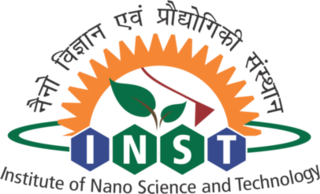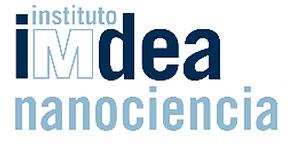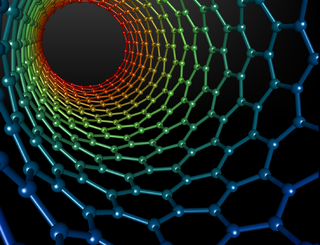Nanomedicine is the medical application of nanotechnology. Nanomedicine ranges from the medical applications of nanomaterials and biological devices, to nanoelectronic biosensors, and even possible future applications of molecular nanotechnology such as biological machines. Current problems for nanomedicine involve understanding the issues related to toxicity and environmental impact of nanoscale materials.

Nanotechnology education involves a multidisciplinary natural science education with courses such as physics, chemistry, mathematics, and molecular biology. It is being offered by many universities around the world. The first program involving nanotechnology was offered by the University of Toronto's Engineering Science program, where nanotechnology could be taken as an option.
The National Nanotechnology Initiative (NNI) is a research and development initiative which provides a framework to coordinate nanoscale research and resources among United States federal government agencies and departments.
The impact of nanotechnology extends from its medical, ethical, mental, legal and environmental applications, to fields such as engineering, biology, chemistry, computing, materials science, and communications.

The Swiss Nanoscience Institute (SNI) at the University of Basel is a center of excellence for nanosciences and nanotechnology in Northwestern Switzerland. It was founded in 2006 by the Canton of Aargau and the University of Basel to succeed the National Center of Competence in Research (NCCR) Nanoscale Science. and with a view to further developing and strengthening education and research in the nanosciences and nanotechnology in Northwestern Switzerland. The SNI is based on an interdisciplinary network of partner organizations and researchers who participate in basic or applied research projects and are involved in educating nanosciences students and doctoral students at the University of Basel. The SNI includes the Nano Technology Center at the University of Basel, which encompasses the Nano Imaging Lab and the Nano Fabrication Lab. These two service units provide academic institutions and industrial companies with services in the areas of microscopic imaging and analysis and nanofabrication.
The following outline is provided as an overview of and topical guide to nanotechnology:

Chad Alexander Mirkin is an American chemist. He is the George B. Rathmann professor of chemistry, professor of medicine, professor of materials science and engineering, professor of biomedical engineering, and professor of chemical and biological engineering, and director of the International Institute for Nanotechnology and Center for Nanofabrication and Molecular Self-Assembly at Northwestern University.

Joseph M. DeSimone is an American chemist, inventor, and entrepreneur who has co-founded companies based on his research, including the American 3D printing technology company, Carbon, of which he was CEO from 2014 until November 2019.

Interdisciplinary Nanoscience Center (iNANO), is an interdisciplinary research and teaching center for nanoscience at Aarhus University in Aarhus, Denmark. The center was founded in 2002 and has been headquartered in The iNano House since 2012.

The Russell Berrie Nanotechnology Institute (RBNI) was established in January 2005 as a joint endeavour of the Russell Berrie Foundation, the government of Israel and the Technion, Israel Institute of Technology. It is one of the largest academic programs in Israel and is among the largest nanotechnology centers in the world.

Younan Xia is a Chinese-American chemist, materials scientist, and bioengineer. He is the Brock Family Chair and Georgia Research Alliance (GRA) Eminent Scholar in Nanomedicine in the Wallace H. Coulter Department of Biomedical Engineering, with joint appointments in the School of Chemistry & Biochemistry, the School of Chemical & Biomolecular Engineering, and Parker H. Petit Institute for Bioengineering & Bioscience at the Georgia Institute of Technology.

The Institute of Nano Science and Technology (INST) is an autonomous research institution of Department of Science and Technology (India), under the Society Registration Act, 1960, under the umbrella of national mission on Nano Science and Technology (NANO MISSION)", which aims to promote growth and outreach of nanoscience and technology for the benefit of country. INST has been set up to undertake research and generate products/devices and technology in the area of Nanoscience and Technology. The institute aims to carry out research in the diverse and rapidly growing areas of nanoscience and technology with specific emphasis on the following areas: Agricultural Nanotechnology, Nanomedicine, Energy and Environmental Science, Quantum Materials and Device Physics, Nano Electronics, Microfluidics Based Technologies, Nanobiotechnology
David G. Kabiller is the founder, founding principal, and head of business development of AQR Capital Management, along with Cliff Asness, John M. Liew and Robert Krail. He initiated AQR's international growth and its introduction of mutual funds as well as the creation of the AQR University symposia series and the AQR Insight Award for outstanding innovation in applied academic research. Kabiller established AQR's QUANTA Academy program, which is designed to help employees reach their full potential. The program offers a holistic approach, focusing on both professional and personal development.
Stergios Logothetidis is a Greek physicist and a full time professor at the solid-state physics department of Aristotle University of Thessaloniki. He is the founder and director of the Lab for Thin Films – Nanosystems and Nanometrology (LTFN). The scientific and research activities of LTFN are focused on the areas of: nanotechnology, organic electronics, nanomedicine, nano-bioelectronics and thin films.

IMDEA Nanoscience Institute is a private non-profit foundation within the IMDEA Institutes network, created in 2006-2007 as a result of collaboration agreement between the Community of Madrid and Spanish Ministry of Education and Science. The foundation manages IMDEA-Nanoscience Institute, a scientific centre dedicated to front-line research in nanoscience, nanotechnology and molecular design and aiming at transferable innovations and close contact with industries. IMDEA Nanoscience is a member of the Campus of International excellence, a consortium of research institutes promoted by the Autonomous University of Madrid and Spanish National Research Council (UAM/CSIC).

The Catalan Institute of Nanoscience and Nanotechnology (ICN2) is a Spanish foundation for interdisciplinary research in nanoscience and nanotechnology. Located on the campus of the Autonomous University of Barcelona (UAB), the institute also offers education programs, training to researchers and services to industry and the scientific community. It is integrated in the research centers organization of the Generalitat de Catalunya (CERCA).
Omid Farokhzad is an Iranian-American physician, scientist, and entrepreneur in the development of nanomedicines. Farokhzad is a Professor of Anesthesiology at Harvard Medical School. Omid Farokhzad is the Chair, Chief Executive Officer and co-founder for Seer, a company focused on deep, unbiased proteomics analysis at scale. The Boston Globe selected him among the top innovators in Massachusetts and the Boston Business Journal selected him among the Health Care Champions for his innovations.

Nanotechnology in warfare is a branch of nano-science in which molecular systems are designed, produced and created to fit a nano-scale (1-100 nm). The application of such technology, specifically in the area of warfare and defence, has paved the way for future research in the context of weaponisation. Nanotechnology unites a variety of scientific fields including material science, chemistry, physics, biology and engineering.
Hamid Ghandehari is an Iranian-American drug delivery research scientist, and a professor in the Departments of Pharmaceutics and Pharmaceutical Chemistry and Biomedical Engineering at the University of Utah. His research is focused in recombinant polymers for drug and gene delivery, nanotoxicology of dendritic and inorganic constructs, water-soluble polymers for targeted delivery and poly(amidoamine) dendrimers for oral delivery.










